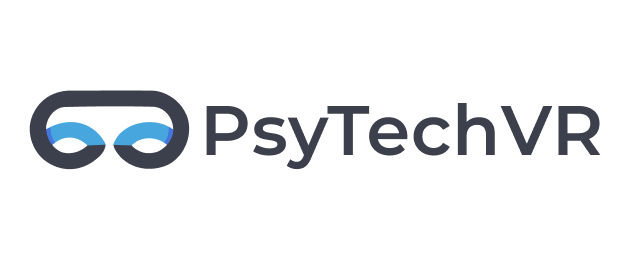Blog - Phobias
Overcome the Fear of Needles: Effective Strategies to Conquer Trypanophobia
By Daniel Andreev, Chief Product Officer at PsyTechVR
April 22, 2025
What is Trypanophobia?

Trypanophobia is the fear of injections or needles; it is a common phobia characterized with an intense fear toward any medical procedure that involves needles or injections. The fear in question is often irrational, but it can also be intense enough to interfere with a person’s daily life – or even prevent them from receiving necessary medical procedures or treatments.
Many people have some sort of mild discomfort around needles, but the response from people with trypanophobia goes beyond any reasonable anxiety classification. The mere thought of a blood test or a vaccination in the future can trigger overwhelming distress in these people, setting off many different reactions, including both physical and psychological ones. A condition like this exists on a spectrum, ranging between mild anxiety to a debilitating fear and everything in-between.
Many people have some sort of mild discomfort around needles, but the response from people with trypanophobia goes beyond any reasonable anxiety classification. The mere thought of a blood test or a vaccination in the future can trigger overwhelming distress in these people, setting off many different reactions, including both physical and psychological ones. A condition like this exists on a spectrum, ranging between mild anxiety to a debilitating fear and everything in-between.
Understanding the Symptoms of Trypanophobia
People with trypanophobia tend to experience a wide range of symptoms, both physical and psychological, when they encounter the prospect of an injection. These symptoms may manifest days or even weeks before a scheduled procedure that relates to needles in some way. The intensity also varies greatly from one patient to another.
There are several distinct phases that most cases adhere to:
There are several distinct phases that most cases adhere to:
- Anticipatory anxiety, which is a distress that builds as the procedure approaches.
- Immediate fear response, showing acute symptoms during actual exposure to needles.
- Avoidance behaviors – patterns of avoiding medical care altogether in order to prevent exposure to needles.
- Post-exposure reactions that include lingering anxiety or embarrassment after any needle-related experience.
Physical Symptoms Associated with Needle Phobia
Physical manifestations of trypanophobia can be somewhat intense, often triggered by the so-called “fight or flight” response that happens unconsciously. It is a situation where the autonomic nervous system activates, flooding the body with stress hormones as soon as someone with such a phobia encounters a needle or even thinks about one.
Some of the most common physical symptoms of trypanophobia are:
Some of the most common physical symptoms of trypanophobia are:
- Respiratory effects: hyperventilation, shortness of breath, feeling of suffocation.
- Skin responses: flushing, sweating, chills.
- Vasovagal response: sudden drops in heart rate or blood pressure, often leading to fainting.
- Cardiovascular changes: palpitations, chest tightness, racing heartbeat.
- Digestive disturbances: stomach cramping, loss of appetite, nausea.
- Muscular reactions: shaking, trembling, muscle tension.
Symptoms of Anxiety Disorder Related to Trypanophobia
Aside from physical reactions, trypanophobia also triggers feelings of strong psychological distress. A combination of emotional and cognitive symptoms can intensify the physical experience of the phobia, working in favor of a self-reinforcing cycle of fear.
Most common examples of psychological responses to this phobia are:
All these psychological symptoms can persist even when the person has a cognitive understanding of how the fear is disproportionate to the actual danger posed by the phobia trigger. Such a strong disconnect between emotional response and rational thought is also a notable hallmark for phobic disorders.
Most common examples of psychological responses to this phobia are:
- Hypervigilance: heightened awareness of medical discussions or settings.
- Concentration problems: difficulty in focusing on daily tasks when in anticipation of a needle-related procedure.
- Intrusive thoughts: persistent worrisome thoughts about injections, needles, or medical procedures.
- Sleep disruption: difficulties with sleeping before scheduled appointments.
- Catastrophic thinking: exaggerated fears about what could happen during an injection.
- Emotional distress: feelings of helplessness, embarrassment, or shame when attempting to confront the phobia.
All these psychological symptoms can persist even when the person has a cognitive understanding of how the fear is disproportionate to the actual danger posed by the phobia trigger. Such a strong disconnect between emotional response and rational thought is also a notable hallmark for phobic disorders.
How Common is Trypanophobia?
According to NIMH (National Institute of Mental Health) and APA (American Psychological Association), up to 10% of the population might struggle with trypanophobia to a certain degree. At the same time, this estimate is an extrapolation from limited research and might not accurately reflect the real situation in the general population. It should also be noted that the prevalence of trypanophobia in certain areas may vary depending on a number of factors – availability of mental health resources, cultural attitude toward injections or needles, and access to medical treatment as a whole.
While trypanophobia can technically develop at any age, it is most common in young adults and children. It can be caused by a general fear of pain or injury, as well as a traumatic injection experience or a lack of understanding about the procedure. There are some cases where trypanophobia is also the symptom of a larger anxiety disorder – panic disorder, generalized anxiety disorder, etc.
While trypanophobia can technically develop at any age, it is most common in young adults and children. It can be caused by a general fear of pain or injury, as well as a traumatic injection experience or a lack of understanding about the procedure. There are some cases where trypanophobia is also the symptom of a larger anxiety disorder – panic disorder, generalized anxiety disorder, etc.
Why is the fear of needles and syringes so popular?
There are multiple reasons on why trypanophobia is so common for people:
- Anticipation of pain, a single thought can be a trigger for the phobia in question.
- Visual contact with the syringe or needle can trigger some people with trypanophobia, as well.
- A lot of medical procedures tend to make people feel as if they have no control, which is what alleviates the fear and anxiety.
- Some people tend to have traumatic experiences with needles or injections in the past, leading to a fear of needles in the present.
- Fear of the unknown is also a substantial factor, lack of understanding about the procedure tends to increase anxiety several times over.
- Trypanophobia may even be inherited if there is a family history of anxiety disorders or phobias.
These reasons can contribute to the development of trypanophobia and make it a common phobia among people of all ages and backgrounds. However, it is essential to note that trypanophobia is a treatable condition. With the help of therapy and medication, many people can overcome their fear and receive necessary medical treatment.
What Causes Trypanophobia?
Fear of needles is a somewhat complex diagnosis that appears from a combination of several domains – life experiences, psychological factors, biological predispositions, etc. Unlike most simple fears, trypanophobia can emerge from a complex interconnected web of learned responses, genetics, and personal history. Medical professionals now recognize that fear of needles is not just about “overreacting” or “being afraid” – it is a legitimate condition with specific neurobiological components and identifiable causes. The most effective treatments learn to address the origins of each person’s fears instead of using a universal approach.
Exploring the Psychological Roots of Needle Fear
Trypanophobia often stems from the way the brain processes pain anticipation and threats in general. The brain’s alarm system called amygdala becomes hyperactive when encountering needle-related stimuli, triggering a massive fear response that сan bypass rational thought. A fear circuit like this can develop via either vicarious learning or direct conditioning.
For many individuals cognitive distortions are some of the biggest reasons why they still have the fear of needles in the first place. Such distortions include overgeneralization, emotional reasoning, catastrophic thinking, and more. These thought patterns are creating a self-reinforcing cycle that can intensify anxiety with each subsequent response to any needle-related situation.
Another strong contributor to the issue is the underlying anxiety sensitivity, which is the fear of physical sensations related to fear. People that are highly attuned to bodily sensations can often misinterpret their normal responses as dangerous events that trigger a feedback loop, amplifying the initial fear response.
For many individuals cognitive distortions are some of the biggest reasons why they still have the fear of needles in the first place. Such distortions include overgeneralization, emotional reasoning, catastrophic thinking, and more. These thought patterns are creating a self-reinforcing cycle that can intensify anxiety with each subsequent response to any needle-related situation.
Another strong contributor to the issue is the underlying anxiety sensitivity, which is the fear of physical sensations related to fear. People that are highly attuned to bodily sensations can often misinterpret their normal responses as dangerous events that trigger a feedback loop, amplifying the initial fear response.
How Past Experiences Fuel the Fear of Needles
Traumatic injection-related experiences, especially during childhood, often serve as the birthplace for lifelong needle phobia. One single painful, embarrassing, or frightening event with needles is enough to imprint itself on the forming mind, creating a template of sorts for future fear responses in this category. It is the primary reason why a lot of people with such specific phobias can remember the exact moment where their fear began.
Negative medical experiences are not just about pain, either – they often involve the feeling of being restrained for a procedure, dismissed by healthcare providers, or experiencing certain complications (bruising, bleeding, etc). The context for such events matters as much as the physical sensations associated with it – being forced to receive an injection in a distressed state has the potential to create a particularly powerful negative association.
Another important factor that bears mentioning here is the role of observational learning. Children that see parents showing extreme fear during injection processes can adopt similar responses, growing into a full-fledged trypanophobia even without any personal experience with injections – a phenomenon that explains certain familial patterns in phobia transmission across generations.
Negative medical experiences are not just about pain, either – they often involve the feeling of being restrained for a procedure, dismissed by healthcare providers, or experiencing certain complications (bruising, bleeding, etc). The context for such events matters as much as the physical sensations associated with it – being forced to receive an injection in a distressed state has the potential to create a particularly powerful negative association.
Another important factor that bears mentioning here is the role of observational learning. Children that see parents showing extreme fear during injection processes can adopt similar responses, growing into a full-fledged trypanophobia even without any personal experience with injections – a phenomenon that explains certain familial patterns in phobia transmission across generations.
Factors that Contribute to Intense Fear of Needles
Certain biological factors also tend to create predispositions toward fear of needles. The vasovagal reflex we mentioned earlier has genetic components to it, making it more pronounced in some families due to an inherited tendency toward fainting that can easily develop into a full-blown phobia.
Temperamental traits established early on have its own influence on phobia generation. Children born with naturally higher anxiety levels or heightened sensitivity to sensory stimuli often face an increased risk of developing a variety of phobias, including trypanophobia. These inherent characteristics are interacting with different environmental factors, shaping an individual’s response to experiences related to needles or injections.
Even media portrayals and cultural attitudes have their own effect on the way people perceive needles. Societies that find healthcare avoidance as normalized, or the ones where medical procedures are generally perceived as frightening, are often a very good source of anxiety that often grows into a full-fledged phobia. The way pain is managed and discussed within communities or families has a similar effect on the way children learn to respond to needle-related procedures.
Temperamental traits established early on have its own influence on phobia generation. Children born with naturally higher anxiety levels or heightened sensitivity to sensory stimuli often face an increased risk of developing a variety of phobias, including trypanophobia. These inherent characteristics are interacting with different environmental factors, shaping an individual’s response to experiences related to needles or injections.
Even media portrayals and cultural attitudes have their own effect on the way people perceive needles. Societies that find healthcare avoidance as normalized, or the ones where medical procedures are generally perceived as frightening, are often a very good source of anxiety that often grows into a full-fledged phobia. The way pain is managed and discussed within communities or families has a similar effect on the way children learn to respond to needle-related procedures.
How is Trypanophobia Diagnosed?
Diagnosing trypanophobia is not as easy as it might seem at first. Proper diagnosis necessitates a clear distinction between regular apprehension about needles and an actual clinically significant phobia that needs to be treated. Unlike general anxiety or temporary feeling of nervousness, true trypanophobia can disrupt a person’s capability to receive medical care on a persistent basis. Any diagnosis process should not only focus on finding the symptoms of this phobia, but also making sure to evaluate how significant the phobia’s effect is on the person’s ability to maintain overall wellbeing and obtain necessary healthcare.
Criteria for Diagnosing Trypanophobia
A formal diagnosis of trypanophobia is established using a popular set of criteria from the Diagnostic and Statistical Manual of Mental Disorders (DSM-5). This list of criteria includes:
- An almost invariably triggered fear response when confronted with any exposure to needles.
- Marked anxiety or fear about an object or a situation, such as needles.
- Active avoidance of needle-related procedures, or endurance of each such procedure with an intense degree of anxiety.
- Massive fear response that is completely out of proportion to the actual danger.
- Symptoms that persist for six months or longer.
- Major impairment or distress in social, occupational, or other areas of functioning.
What to Expect During the Diagnosis Process
When attempting to seek help for suspected trypanophobia, the initial evaluation should always begin with a comprehensive discussion of different symptoms and the way they affect a patient’s day-to-day life. Some of the most common topics are previous attempts to address the fear, family patterns in anxiety disorders, history of the phobia, and specific situations that trigger fear responses.
Certain specialized assessment tools may be used, as well, such as the Blood-Injection-Injury Phobia Scale or the Medical Fear Survey. Standardized instruments like these help with quantifying the phobia’s severity while identifying specific aspects of needle-related procedures that invoke the strongest reaction.
The clinician may also evaluate various physical symptoms associated with needle exposure, especially the vasovagal response, which is often used to distinguish trypanophobia from many other phobias.A physiological reaction like this is an important diagnostic consideration since some treatment approaches may have to be modified for patients with a pronounced vasovagal response.
Certain specialized assessment tools may be used, as well, such as the Blood-Injection-Injury Phobia Scale or the Medical Fear Survey. Standardized instruments like these help with quantifying the phobia’s severity while identifying specific aspects of needle-related procedures that invoke the strongest reaction.
The clinician may also evaluate various physical symptoms associated with needle exposure, especially the vasovagal response, which is often used to distinguish trypanophobia from many other phobias.A physiological reaction like this is an important diagnostic consideration since some treatment approaches may have to be modified for patients with a pronounced vasovagal response.
Common Phobias Like Trypanophobia
Trypanophobia is a part of a broader category referred to as blood-injection-injury phobias, all of which share similar features and often coexist alongside each other. In this cluster, related phobias include:
- Algophobia – a fear of pain, intensifying anxiety around procedures that are perceived as painful.
- Traumatophobia – a fear of physical injury, which tends to overlap with injection-related concerns.
- Hemophobia – a fear of blood, also often accompanying the needle phobia.
- Nosocomephobia – a fear of hospitals that has the potential to compound injection anxiety.
- Pharmacophobia – a fear of medications that may sometimes affect the delivery methods for certain medicine.
- Iatrophobia – a fear of doctors, complicating treatment of any phobia.
How Can You Overcome Trypanophobia?
The treatment of trypanophobia often includes a combination of medication and psychotherapy. CBT (Cognitive Behavioral Therapy) is a common form of psychotherapy that works on trypanophobia, aiming to change a person’s thoughts about needles and injections. Exposure therapy is also a potential solution in certain situations, simulating a gradual exposure of a person to the object of their fear in controlled environments. Medications such as anti-anxiety meds or beta-blockers are only prescribed in more severe cases of trypanophobia to help block the physical or psychological symptoms of it.
Effective Strategies for Overcoming Needle Fear
Several evidence-based techniques have proven themselves particularly effective in managing needle phobia for a lot of patients:
- Cognitive restructuring: A relatively long mental reframing process that teaches patients to identify distorted thinking patterns and replace them with more realistic and grounded assessments. As time goes on, this approach helps reduce anticipatory anxiety, creating a more balanced perspective on anxiety-provoking situations.
- Distraction methods: Diverting attention resources away from the feared stimuli can significantly reduce perceived pain and anxiety during such procedures. This might include conversations, listening to music, focusing on breathing, or even using virtual reality environments.
- Applied tension technique: A physiological intervention that can help counteract the drop in blood pressure leading to fainting. Tensing the muscles of the arms, torso, and legs for about 15 seconds and then releasing slightly while still maintaining some tension helps patients maintain blood pressure levels during needle procedures, especially for users with strong vasovagal responses.
How do psychologists help people struggling from fear of needles?
Psychologists can help people struggling with trypanophobia (fear of needles and syringes) in several ways:
- Cognitive-behavioral therapy (CBT): CBT is a form of treatment that helps people identify and change negative thoughts and behaviors. A psychologist may work with a person with trypanophobia to challenge their fearful thoughts and beliefs about needles and help them develop more rational, less scary ideas.
- Systematic desensitization: Systematic desensitization is a therapy that helps people gradually become less fearful of a stimulus, such as needles. The therapist may start by assisting the person in imagining or visualizing scenarios involving hands and then move progressively to real-life exposure to needles in a controlled environment.
- Medication: In some cases, medication may be used in conjunction with therapy to help manage symptoms of trypanophobia. Anti-anxiety medications, such as benzodiazepines and beta-blockers, can help reduce physical symptoms of anxiety, such as rapid heartbeat and sweating.
- Relaxation techniques: Relaxation techniques, such as deep breathing, progressive muscle relaxation, and guided imagery, can help reduce anxiety and fear associated with trypanophobia.

It's important to note that the most effective treatment plan will vary from person to person and may involve a combination of therapy, medication, and self-help techniques. A psychologist can work with a person with trypanophobia to develop a personalized treatment plan that addresses their specific needs and fears.
While CBT, systematic desensitization, medication, and relaxation techniques can effectively treat phobias, they have limitations, including a lack of immersion. For some people with trypanophobia, simply imagining or visualizing a situation involving needles may not be enough to overcome their fear. More immersive techniques, such as virtual reality exposure therapy, will be more effective in these cases.
While CBT, systematic desensitization, medication, and relaxation techniques can effectively treat phobias, they have limitations, including a lack of immersion. For some people with trypanophobia, simply imagining or visualizing a situation involving needles may not be enough to overcome their fear. More immersive techniques, such as virtual reality exposure therapy, will be more effective in these cases.
Role of Cognitive Behavioral Therapy in Trypanophobia Treatment
Cognitive Behavioral Therapy is the golden standard in psychological treatment for specific phobias, which includes trypanophobia. It is a structured therapeutic approach that helps patients identify and challenge the distorted thoughts that maintain their fear while attempting to confront needle-related situations in a gradual manner.
A typical CBT protocol for needle phobia has a progressive structure, beginning with education about the nature of anxiety and then advancing via increasingly challenging exposure exercises. The role of a therapist in such cases is that of a coach and a guide, helping with the coping skill development while offering support during difficult exposure situations. A comprehensive nature of the procedure is what distinguishes CBT from many different approaches – since it can address thoughts, behaviors, and physical responses at the same time, offering a more complete recovery process.
A typical CBT protocol for needle phobia has a progressive structure, beginning with education about the nature of anxiety and then advancing via increasingly challenging exposure exercises. The role of a therapist in such cases is that of a coach and a guide, helping with the coping skill development while offering support during difficult exposure situations. A comprehensive nature of the procedure is what distinguishes CBT from many different approaches – since it can address thoughts, behaviors, and physical responses at the same time, offering a more complete recovery process.
Exposure Therapy: A Proven Method to Combat Phobia
Exposure therapy works on a fundamental principle of psychology, where fears are getting progressively smaller when going through safe, repeated contact with the feared stimuli. When it comes to trypanophobia, this involves carefully structured exposure to various needle-related situations, from less threatening scenarios to more challenging ones. Such a gradual approach helps build confidence while preventing overwhelming anxiety spikes at the same time.
A key to successful exposure therapy sessions is in a proper implementation – each session has to be long enough for the anxiety to start decreasing naturally, and they should also occur frequently enough to avoid regression between sessions. Traditional exposure therapy methods have proven themselves quite effective over the years, but some of the newer variations of the technology, such as VRET (Virtual Reality Exposure Therapy), are significantly more effective while offering another chance for users that found conventional exposure too intimidating.
A key to successful exposure therapy sessions is in a proper implementation – each session has to be long enough for the anxiety to start decreasing naturally, and they should also occur frequently enough to avoid regression between sessions. Traditional exposure therapy methods have proven themselves quite effective over the years, but some of the newer variations of the technology, such as VRET (Virtual Reality Exposure Therapy), are significantly more effective while offering another chance for users that found conventional exposure too intimidating.
What Help is Available for Trypanophobia?
A diverse ecosystem of support exists for individuals struggling with the fear of needles, ranging from community resources to clinical interventions. There are multiple entry points for treatment in the overall healthcare system, including specialized anxiety clinics, primary care physicians, mental health specialists, and so on. More tailored programs emerge to address trypanophobia specifically due to the growing recognition of its impact on public health in general. The increased integration of mental health awareness into general healthcare also helps create more compassionate approaches for those with different medical fears.
Professional Help for Individuals with Needle Phobia
Mental health professionals with expertise in anxiety disorders offer the most comprehensive treatment for trypanophobia. Clinical psychologists that specialize in CBT can offer structured treatment approaches that last 8-12 sessions and promising dramatic improvements within the first few weeks for most patients. They use evidence-based protocols that are developed specifically for blood-injection-injury phobias, addressing the unique vasovagal component that can be used to distinguish these fears from the rest.
Psychiatrists can also become involved when medication can be advantageous to the overall treatment plan, especially for individuals that have comorbid anxiety disorders or some sort of drastic symptom combination that prevents therapy-related engagement with them. The most effective approach for most people would include collaboration between several professionals at once – a psychologist, a psychiatrist, and a medical provider. Such an integrated care model can help make sure that any and all aspects of the condition have the appropriate amount of attention.
Psychiatrists can also become involved when medication can be advantageous to the overall treatment plan, especially for individuals that have comorbid anxiety disorders or some sort of drastic symptom combination that prevents therapy-related engagement with them. The most effective approach for most people would include collaboration between several professionals at once – a psychologist, a psychiatrist, and a medical provider. Such an integrated care model can help make sure that any and all aspects of the condition have the appropriate amount of attention.
How to Personalize Treatment Plans for Needle Fear
Effective treatment plans have to account for each patient’s manifestation of needle phobia, including their symptom patterns, treatment preferences, specific triggers, etc. An assessment should be used to identify whether the primary concern is about blood, pain, fainting, loss of control, or a combination of these factors. After the assessment, a treatment should be picked to target the specific factors found above instead of using a generalized approach that would not be as effective in comparison.
Personalization also implies adapting to the individual’s preferred pace of treatment, with some people necessitating a slower approach than others, for one reason or another. A skilled clinician can work collaboratively with the patient to create a treatment plan that offers both therapeutic effectiveness and the necessary dose of challenging but necessary components, such as exposure exercises.
Personalization also implies adapting to the individual’s preferred pace of treatment, with some people necessitating a slower approach than others, for one reason or another. A skilled clinician can work collaboratively with the patient to create a treatment plan that offers both therapeutic effectiveness and the necessary dose of challenging but necessary components, such as exposure exercises.
Support Groups and Resources for Overcoming Trypanophobia
Support groups play an important part in helping those working to overcome needle phobia by offering invaluable complementary help. Such communities offer understanding from others with similar experiences, along with practical tips for managing difficult situations and may even boost motivation using the sharing of success stories. Peer support differs significantly from professional treatment, addressing the emotional and social dimensions of living with a phobia that tends to be minimized or dismissed on a regular basis.
Numerous self-help resources have also emerged over the years, be it specialized books, mobile apps, or online courses – all designed to combat trypanophobia. Quality resources offer evidence-based techniques in accessible formats, with between-session support during formal treatment or even serving as a starting point for users that may not be ready for professional help yet. Some medical facilities even provide preparatory materials specific to their own procedures, helping patients become familiar with what to expect before an appointment.
Numerous self-help resources have also emerged over the years, be it specialized books, mobile apps, or online courses – all designed to combat trypanophobia. Quality resources offer evidence-based techniques in accessible formats, with between-session support during formal treatment or even serving as a starting point for users that may not be ready for professional help yet. Some medical facilities even provide preparatory materials specific to their own procedures, helping patients become familiar with what to expect before an appointment.
Can Virtual Reality Assist in Overcoming Trypanophobia?
Virtual reality can help overcome trypanophobia (fear of needles and syringes) by providing an immersive and controlled environment for exposure therapy. In VR exposure therapy for trypanophobia, clients are gradually exposed to virtual simulations of the feared situation (such as receiving an injection), allowing them to confront and overcome their fear in a safe and controlled environment
The VR technology allows for a highly immersive experience, making the exposure therapy more effective and increasing the likelihood of success. The virtual simulations can also be customized to the individual's specific needs and fears, making the treatment more personalized and effective. Additionally, VR exposure therapy is repeatable, allowing people to gradually increase their exposure to the feared situation and build their confidence.
The VR technology allows for a highly immersive experience, making the exposure therapy more effective and increasing the likelihood of success. The virtual simulations can also be customized to the individual's specific needs and fears, making the treatment more personalized and effective. Additionally, VR exposure therapy is repeatable, allowing people to gradually increase their exposure to the feared situation and build their confidence.
Did you know enthusiasts first tried integrating VR into exposure therapy more than 40 years ago?
The history of VRET, or Virtual Reality Exposure Therapy, goes back as far as the 1980s, with the first introduction of virtual reality technology. The fact that virtual reality was initially used in simulation and entertainment purposes did not stop mental health specialists from exploring its potential as the means of treating people with phobia and other mental health disorders.
VRET truly began to gain traction in the 1990s and the early 2000s, quickly becoming a popular solution for people that cannot deal with their issues with traditional exposure therapy techniques. Being able to fact the fears in a controlled and safe environment with the help of VR made it surprisingly famous, with the technology advancing at a very fast pace since then, developing increasingly realistic and immersive simulations for VRET purposes. In a modern world, VRET is recognized all over the world as an effective treatment for phobias and anxiety disorders, used by mental health specialists worldwide to resolve people’s issues to help them live their lives in a more fulfilling manner.
VRET truly began to gain traction in the 1990s and the early 2000s, quickly becoming a popular solution for people that cannot deal with their issues with traditional exposure therapy techniques. Being able to fact the fears in a controlled and safe environment with the help of VR made it surprisingly famous, with the technology advancing at a very fast pace since then, developing increasingly realistic and immersive simulations for VRET purposes. In a modern world, VRET is recognized all over the world as an effective treatment for phobias and anxiety disorders, used by mental health specialists worldwide to resolve people’s issues to help them live their lives in a more fulfilling manner.
How Effective is VR in Reducing Anxiety During Medical Procedures?
Clinical research demonstrates plenty of evidence showing how effective VR is in reducing needle-related anxiety. Several controlled studies have shown that patients using VR during injections or blood draws score 30-50% lower than regular control groups. Such reduction stems from a very powerful ability of virtual reality to divert attention away from anxiety-provoking stimuli, effectively redirecting the brain’s attentional resources with different sensory input to compete with fear and pain signals.
Of course, the specific effectiveness may vary based on individual factors and implementation methods. Interactive VR environments are generally more effective than passive viewing experiences, as engagement depletes more attentional resources available for processing anxiety than regular watching. Most notable achievement here is a particularly strong result in anxiety reduction for children, with some studies documenting up to 60% reduction in distress and improved cooperation with medical staff at the same time.
Of course, the specific effectiveness may vary based on individual factors and implementation methods. Interactive VR environments are generally more effective than passive viewing experiences, as engagement depletes more attentional resources available for processing anxiety than regular watching. Most notable achievement here is a particularly strong result in anxiety reduction for children, with some studies documenting up to 60% reduction in distress and improved cooperation with medical staff at the same time.
VR and Trypanophobia. How Does it Work?
Virtual reality in itself is a revolutionary approach to treating various phobias using immersive, controlled environments capable of bridging the gap between reality and imagination. VR can offer precise control over the nature and intensity of the feared stimuli while maintaining the necessary level of emotional engagement for therapeutic benefit. That way, a middle ground of sorts is created – a process realistic enough to trigger fear responses and address them, but also removed enough to feel manageable for users with severe phobias or otherwise challenging diagnosis.
How Do Specialists Adopt VRET to Trypanophobia Therapy?
Mental health specialists tend to incorporate virtual reality exposure therapy into their existing techniques and strategies. They use VR to create simulations of the feared situation with a gradual increase in exposure that helps people build confidence and overcome fear as a result. Other therapeutic techniques can also be included in the process to address potential underlying thoughts or beliefs that fuel the fear (CBT, relaxation techniques, etc.). At the end of the day, each individual client requires its own approach in therapy to help them overcome their phobias and anxieties.
We can try to compare VR exposure therapy with other instruments in this field, as well. VRET can provide a number of advantages over traditional exposure therapy, including:
Overall, VRET offers several advantages over traditional exposure therapy techniques and can be a highly effective treatment option for trypanophobia (fear of needles and syringes) and other phobias and anxiety disorders.
- Immersive: Modern-day virtual reality hardware can offer a highly immersive experience, creating a realistic but still controllable environment, making the therapy more effective as a result due to a better engagement with the situation.
- Anxiety-reducing: The creation of a safe and controlled environment reduces the risk of panic or anxiety attacks and improves the effectiveness of the process.
- Customizable: A more personalized and effective treatment is possible due to VRET’s ability to be customized to the specific needs and fears of each individual.
- Repeatable: Unlike real-life exposure therapy, VRET can be repeated as often as needed without risk to the person's health or safety. This allows the individual to gradually increase their exposure to the feared situation and build confidence.
- Accessible: VRET can be delivered in a variety of settings, including clinics, hospitals, and even in the comfort of the person's own home. This can make exposure therapy more accessible to those who may have difficulty traveling to a clinic or hospital.
Overall, VRET offers several advantages over traditional exposure therapy techniques and can be a highly effective treatment option for trypanophobia (fear of needles and syringes) and other phobias and anxiety disorders.
PsyTechVR is Ready to Help You with Trypanophobia
PsyTechVR is a virtual reality platform for mental health and psychological treatment. It provides a comprehensive system for overcoming anxieties, phobias, and fears, incorporating an academic Cognitive-Behavioral Therapy (CBT) approach. The platform consists of three key components:
- A learning management system that offers CBT-based learning paths and courses, with check-up surveys for daily progress tracking. This can be accessed at https://psytechvr.coreachieve.com/.
- A VR training application that provides micro-training in emotions, cognitions, soft skills, and wellness/relaxation practices, with over 80 levels covering topics such as anxieties, phobias, mindfulness meditations, and art therapy. It is compatible with Meta Quest / PRO, Pico ¾, and HTC Focus 3
- A dashboard with training analytics that provides feedback on progress and allows therapists to manage users and linked accounts.
Our system goes beyond just being a fear-conquering game with immersive environments. It is a comprehensive solution that adopts an academic approach to address anxieties and mental health disorders.
Therapists, psychologists, psychiatrists and other mental health specialists use PsyTech VR as a practice tool for their VRET efforts for individuals with anxiety disorders or phobias. VR simulations make it possible to create a controlled and safe environment to confront and overcome fears and anxieties, with gradual exposure and progressively challenging scenarios making the process much more effective as a result.
Other evidence-based treatments such as CBT can also be complemented by using PsyTechVR, helping psychologists to create a personalized treatment plan for every patient and offering plenty of flexibility for the VR aspect to make it possible to even seek treatment from the safety of the client’s home.
Other evidence-based treatments such as CBT can also be complemented by using PsyTechVR, helping psychologists to create a personalized treatment plan for every patient and offering plenty of flexibility for the VR aspect to make it possible to even seek treatment from the safety of the client’s home.
Frequently Asked Questions
How can overcoming trypanophobia improve overall health and encourage more routine medical care?
Conquering needle phobia helps remove a substantial barrier to comprehensive healthcare, which often leads to drastic improvements in preventive medicine compliance. Patients that have managed to conquer trypanophobia find it significantly easier to receive overdue vaccinations and undergo various blood tests to detect early-stage conditions before they can become serious. Medical avoidance also contributes to this issue, leaving a lot of health issues unaddressed for years due to a single phobia. A psychological relief from no longer structuring the entire life around avoiding healthcare also helps the overall mental state, helping people feel more empowered in various healthcare decisions and more willing to discuss concerning situations with medical providers.
Are there any early warning signs that suggest someone may develop trypanophobia later in life?
Children that demonstrate heightened pain sensitivity, general anxiety tendencies, and pronounced startle responses face an elevated risk of developing trypanophobia. Similarly, children that have shown extreme distress during early vaccination also warrant special attention. Family patterns are also a threat in some cases, and vasovagal sensitivity should especially be paid close attention to due to its close connection to such phobias.
Can family dynamics or cultural beliefs influence the severity of needle phobia?
Family systems are known to shape how individuals respond to and perceive needle procedures. Parents can unconsciously teach children that “needles = danger”, while using threats of shots as punishment or dramatizing medical expenses can have an even worse effect on a child’s mind that can last an entire lifetime. Cultural factors are also important in such cases, with communities favoring stoicism often inadvertently increasing needle anxiety by discouraging any expression of fear or pain in the first place. The opposite is also true – cultural contexts that normalize medical care using positive framing and communal support tend to show lower rates of severe trypanophobia than the rest.


Complete VR Package for $1599 *
Buying options
PsyTechVR Bundle
Your VR headset
Book a DEMO to get a 15-day FREE TRIAL, then use your own VR device or order a Meta Quest separately
15-day Free Trial, then $120/month
Includes the latest Meta Quest 3s, 12-month access, regular updates, support, training, and marketing materials
* Limited time offer until product is in stock
VR Bundle
Special offer: 35% off Storewide
$
1,599
$
2,499
- Latest Meta Quest 3s (128GB) VR Headset with the installed VR app
- 12-Month Access to PsyTechVR Platforms
- Generative-AI to create exposure scenarios
- Dedicated Support Manager
- Comprehensive 4-Hour Training & Certificate
- Exclusive Marketing Materials for your website and social media
*VR headset will belong to you with full access to the VR app store
Thanks for reading!
Daniil Andreev
Chief Product Officer and Co-founder
He has a specialization in working with Unreal Engine development and XR, collaborating closely with multiple mental health professionals, such as Dr. Udi Oren, current president of the EMDR Association of Israel; Dr. Albert “Skip” Rizzo, a research professor at the University of Southern California's Department of Psychiatry and Behavioral Sciences and the Davis School of Gerontology; as well as Dr. Gwilym Roddick, who is a director and founder of Cognitive Behavioral Therapy of Central & South Florida. The development of VR exposure therapy environments have advanced significantly as a result of this collaboration.
Daniil has led powerful teams toward creating groundbreaking solutions capable of combining deep user empathy with technical expertise in the field. One of the most noteworthy achievements is the leading position in the development of MindGap AI – an artificial intelligence platform that assists with creating custom virtual environments and scenarios for exposure therapy. His leadership has been a significant part of why PsyTechVR can deliver such impactful and user-oriented solutions that improve mental health treatment efforts while also assisting business growth.
Daniil has led powerful teams toward creating groundbreaking solutions capable of combining deep user empathy with technical expertise in the field. One of the most noteworthy achievements is the leading position in the development of MindGap AI – an artificial intelligence platform that assists with creating custom virtual environments and scenarios for exposure therapy. His leadership has been a significant part of why PsyTechVR can deliver such impactful and user-oriented solutions that improve mental health treatment efforts while also assisting business growth.
Daniil Andreev is an efficient product manager with more than 6 years of experience in the VR industry, with a strong emphasis on developing and scaling products of mental health and education fields.

Read more about PsyTechVR
We publish articles on phobias, mental health, upcoming events, and special offers
| | Get in touch We're ready to lead you into the future of mental health Sending this information you agree to share your personal information according and limited by our confidentiality statement. |

Welcome!
We're excited to offer you the chance to experience the power of PsyTech VR with a FREE Trial!




 PsyTechVR
PsyTechVR




